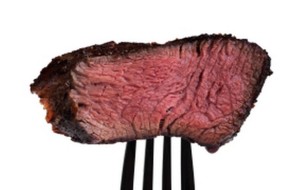Between 24 March and 27 May 2016, eleven Salmonella spp. isolates with an unusual antigenic type were identified by the National Reference Laboratory for Salmonella and Shigella (NRLSS) in Greece.
 The antigenic type of the eleven isolates was 11:z41:e,n,z15, which is not referred to in the 9th edition of the White-Kauffman–Le Minor Scheme [1]. The isolates were cultured from stool and collected from ten patients with diarrhea; for one asymptomatic case, the sample was obtained during a routine test for acquiring a certificate for occupational use. However, the latter case reported having had gastroenteritis symptoms some weeks before. None of the isolates fermented malonate but all fermented dulcitol, indicating that they belong to Salmonella enterica subspsecies enterica [1]. All were susceptible to the laboratory routine panel of antimicrobial agents, including third generation cephalosporins and fluoroquinolones. Tests were performed using the disk diffusion method and breakpoints according to the European Committee on Antimicrobial Susceptibility Testing (EUCAST) were applied [2].The pulsed-field gel electrophoresis (PFGE) profiles, after digestion with XbaI according to PulseNet protocol [3], were indistinguishable in 10 of the 11 strains (one result of the last isolated strain is pending) (Figure 1).
The antigenic type of the eleven isolates was 11:z41:e,n,z15, which is not referred to in the 9th edition of the White-Kauffman–Le Minor Scheme [1]. The isolates were cultured from stool and collected from ten patients with diarrhea; for one asymptomatic case, the sample was obtained during a routine test for acquiring a certificate for occupational use. However, the latter case reported having had gastroenteritis symptoms some weeks before. None of the isolates fermented malonate but all fermented dulcitol, indicating that they belong to Salmonella enterica subspsecies enterica [1]. All were susceptible to the laboratory routine panel of antimicrobial agents, including third generation cephalosporins and fluoroquinolones. Tests were performed using the disk diffusion method and breakpoints according to the European Committee on Antimicrobial Susceptibility Testing (EUCAST) were applied [2].The pulsed-field gel electrophoresis (PFGE) profiles, after digestion with XbaI according to PulseNet protocol [3], were indistinguishable in 10 of the 11 strains (one result of the last isolated strain is pending) (Figure 1).
According to the database of the NRLSS and of the Veterinary Reference Laboratory for Greece, the antigenic type 11:z41:e,n,z15 has never been identified before from animals, animal products or food samples.
All cases, defined as persons with diarrhoea with the new Salmonella enterica subsp. enterica serovar (n=10), were of Greek nationality (6 male, 4 female). Eight of the cases were children (15 months ̶ 3 years old) and two were adults (28̶ 60 years of age). Cases’ symptoms included diarrhoea (one case had bloody diarrhoea), vomiting and abdominal cramps, and three of them reported fever (≥38.0°C). Three cases reported relapse of symptoms and all cases will be followed up. Three of the identified cases reported a household contact with similar symptoms (another child in the same family). Investigation of the possible household clusters showed that they were most probably co-infected but none of the household contacts was laboratory-confirmed. In this report, only information for laboratory-confirmed cases is presented.
The majority of the cases (n=9) were scattered in the region of Attica, one case was identified in Kastoria in northern Greece, and another in Korinthos, central Greece. Only one case reported travel abroad to Torino, in Italy, five days before the symptom onset. This case stated developing symptoms before returning to Greece. Figure 2 presents the temporal distribution of cases by week of symptom onset.
The PFGE profile [4] was uploaded to the European Surveillance System (TESSy) operated by the European Centre for Disease Prevention and Control (ECDC) (ECDC_ID: f5f0517b-f809–4d2b-973f-3f9c520b9d77) and an urgent inquiry (UI) was launched via the ECDC’s Epidemic Intelligence Information System (EPIS) (UI-358). According to the ECDC food- and waterborne diseases curators, no isolates with a matching PFGE profile (XbaI.2460) have been reported to TESSy (personal communication, Saara M. Kotila, ECDC, 25 May 2016). Moreover, none of the 15 countries that replied to the UI had identified the new serovar in the past.
Three of the isolates were sent to the World Health Organization (WHO) Collaborating Centre for Reference and Research on Salmonella at Pasteur Institute in Paris, France, which is responsible for the validation of new serovars. According to Pasteur Institute, the isolates represent a putative new serotype of Salmonella enterica subsp. enterica (personal communication, Francois-Xavier Weill, Pasteur Institute, 26 May 2016).
Laboratory confirmed cases were interviewed by telephone with a standard trawling questionnaire for investigating salmonellosis cases but no apparent epidemiological link has yet been identified. Cases were geographically scattered, had not travelled inside the country, did not have pets or contact with reptiles, and had not participated in any common activities. Based on the results from the trawling questionnaires, no food item emerged as possible source of the infections. Thus, it was decided to further investigate this salmonellosis cluster by performing an analytical study. Given the highly selective nature of food-borne case reporting and in order to reduce recall bias, a case–case study for the identification of possible risk factors was designed [5-7]. This study included a comparison group of Salmonella Enteritidis cases from the Greek Mandatory Notification System (MNS) matched by age (± 1 year), and place of residence. In order to increase the power of the study, the ratio of case–case 1:3 was decided.
A structured web-based trawling questionnaire, containing a long list of possible exposures (food and water consumption, exposures to animals, travel history, activities, etc.) was developed and distributed to all cases (both of unknown Salmonella serovar
According to some preliminary findings, a new Salmonella enterica sub. enterica serovar seems to have caused an outbreak in Greece over two months in the first half of 2016, with 10 cases (and one asymptomatic) as of 27 May. Reported cases are mostly children, however this may be influenced by the fact that laboratory tests are performed more frequently in children with gastroenteritis symptoms than in adults with the same symptoms. We cannot be sure about the geographical distribution of cases. The higher number of cases from Attica may be because more isolates are sent to the National Reference Laboratory from this region. Three cases reported relapse of symptoms. Data on the severity of the disease are also gathered and a case–case study is underway. Final results are pending.
We encourage other countries to contact authors in case of identifying isolates of the new serovar of Salmonella enterica susp. enterica with the antigenic type 11:z41:e,n,z15.
An outbreak of a possibly new Salmonella Enterica subspecies enterica serovar with the antigenic formula 11:Z41:E,N,Z15, Greece, March to May 2016
Eurosurveillance, Volume 21, Issue 25, June 2016, DOI: http://dx.doi.org/10.2807/1560-7917.ES.2016.21.25.30265
G Mandilara, K Mellou, K Karadimas, L Georgalis, M Polemis, T Georgakopoulou, A Vatopoulos
http://www.eurosurveillance.org/ViewArticle.aspx?ArticleId=22511
 Gemma Tepper, 32, her partner, Lee, 36, say their big day was ruined by the outbreak of Cryptosporidium – a respiratory and gastic illness – at their hotel on the Greek island of Zante.
Gemma Tepper, 32, her partner, Lee, 36, say their big day was ruined by the outbreak of Cryptosporidium – a respiratory and gastic illness – at their hotel on the Greek island of Zante.




